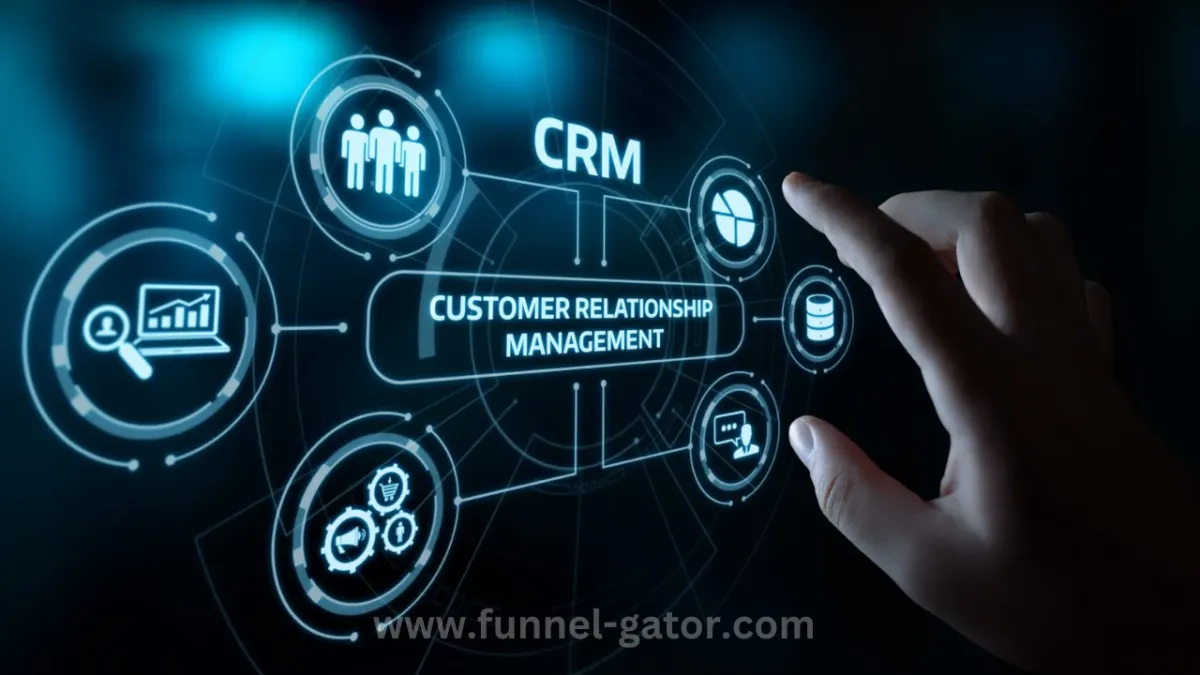
CRM Manager: The Heart of Customer Relationships in the Digital Age
In today’s fast-paced, digital-first world, businesses face one major challenge—keeping customers happy. That’s where a CRM manager steps in. Think of them as the “relationship doctor” for a company. They don’t just manage data—they create strong, lasting connections between a business and its customers.
In this article, we’ll take a deep dive into what a CRM manager does, why they matter, how to become one, and how investing in a solid CRM system can transform your business.
🧠 What Is a CRM Manager, Really?
A CRM manager (Customer Relationship Management manager) is responsible for making sure that a company communicates with its customers in the best possible way. Their job is to use tools, especially CRM software, to:
Organize customer data
Improve customer satisfaction
Increase customer retention
Drive sales through smarter marketing and service
Still sound a bit vague? Imagine this:
✍️ A small coffee shop owner knows every regular by name. She remembers who likes oat milk, who’s allergic to peanuts, and who always orders an extra shot of espresso. Now imagine doing that for 10,000 customers. That’s where a CRM manager comes in—scaling that personalized experience.
🛠️ What Does a CRM Manager Actually Do?
Here’s a quick breakdown of a CRM manager's day-to-day responsibilities:
1. Managing CRM Software
Whether it’s Salesforce, HubSpot, or Zoho CRM, the CRM manager is in charge of making sure the tool is being used effectively. That means setting up workflows, automating emails, and ensuring the sales and support teams are all aligned.
2. Analyzing Customer Data
Using built-in analytics tools, they dive into trends like customer churn, buying habits, and feedback scores. With that info, they help the business make smarter decisions.
3. Improving Customer Journeys
By identifying gaps in communication or service, a CRM manager improves how the company interacts with customers—whether it’s smoother onboarding, better email campaigns, or follow-ups after a purchase.
4. Training and Supporting Teams
They’re the go-to expert for anything CRM-related. That means training salespeople, marketers, and customer support agents to use the platform correctly.
📈 Why Every Business Needs a CRM Manager
You might think, “Can’t a marketing manager or sales lead handle this?” In small companies, maybe. But as your business grows, having a dedicated CRM manager ensures you’re not just collecting customer data—but actually using it to build stronger relationships.
Here’s why that matters:
💡 Personalized communication leads to more sales
💬 Timely customer support creates brand loyalty
📊 Data-driven insights reduce churn and increase retention
In short, a CRM manager turns everyday data into long-term value.
🧭 How to Become a CRM Manager: A Step-by-Step Guide
Thinking about becoming a CRM manager? Or hiring one? Here’s a simple path to get there.
Step 1: Learn the Basics
Get familiar with key concepts in customer service, sales funnels, and marketing automation. Resources like HubSpot Academy offer free courses.
Step 2: Get Hands-On With CRM Tools
Start with free tools like Zoho CRM or HubSpot CRM. Learn how to:
Create contact records
Set up sales pipelines
Run simple campaigns
Step 3: Understand Customer Psychology
It’s not just tech—it’s people. Knowing what makes customers tick helps tailor better experiences.
Step 4: Learn Data Analytics
Tools like Google Analytics and CRM dashboards help you turn numbers into action.
Step 5: Practice Communication
You’ll work with multiple teams—marketing, sales, support—so soft skills are just as vital as tech know-how.
💼 The Business Case: Why You Should Invest in a CRM System
If you’re a business owner or decision-maker, here’s the million-dollar question: why should you invest in a CRM system?
Well, the numbers don’t lie.
📊 According to Nucleus Research, the average return on investment for CRM software is $8.71 for every dollar spent.
That’s huge. With features like automation, real-time analytics, and omnichannel communication, a modern CRM system allows you to:
Convert leads faster
Keep customers longer
Work smarter, not harder
🔍 How to Choose the Right CRM Platform
Here are a few things to consider:

🔗 Helpful guide: How to Choose a CRM
💬 Real Talk: A CRM Manager's Anecdote
Let me share a story.
A startup I consulted for had been tracking customer feedback in spreadsheets—over 7 different ones! Sales was missing leads, support had no clue about past complaints, and marketing was sending tone-deaf campaigns.
We implemented a proper CRM system and trained a dedicated CRM manager. Within 6 months:
Customer complaints dropped by 30%
Sales conversion improved by 20%
Email engagement doubled
The best part? Their customer satisfaction score hit an all-time high. All thanks to someone taking charge of the relationship pipeline.
🧠 Final Thoughts: The CRM Manager is Your Secret Weapon
In a world full of data, what you do with it makes all the difference. A CRM manager ensures that your customers feel heard, understood, and valued. Whether you’re a startup, growing business, or established brand, investing in the right CRM system and person to manage it is a game-changer.


